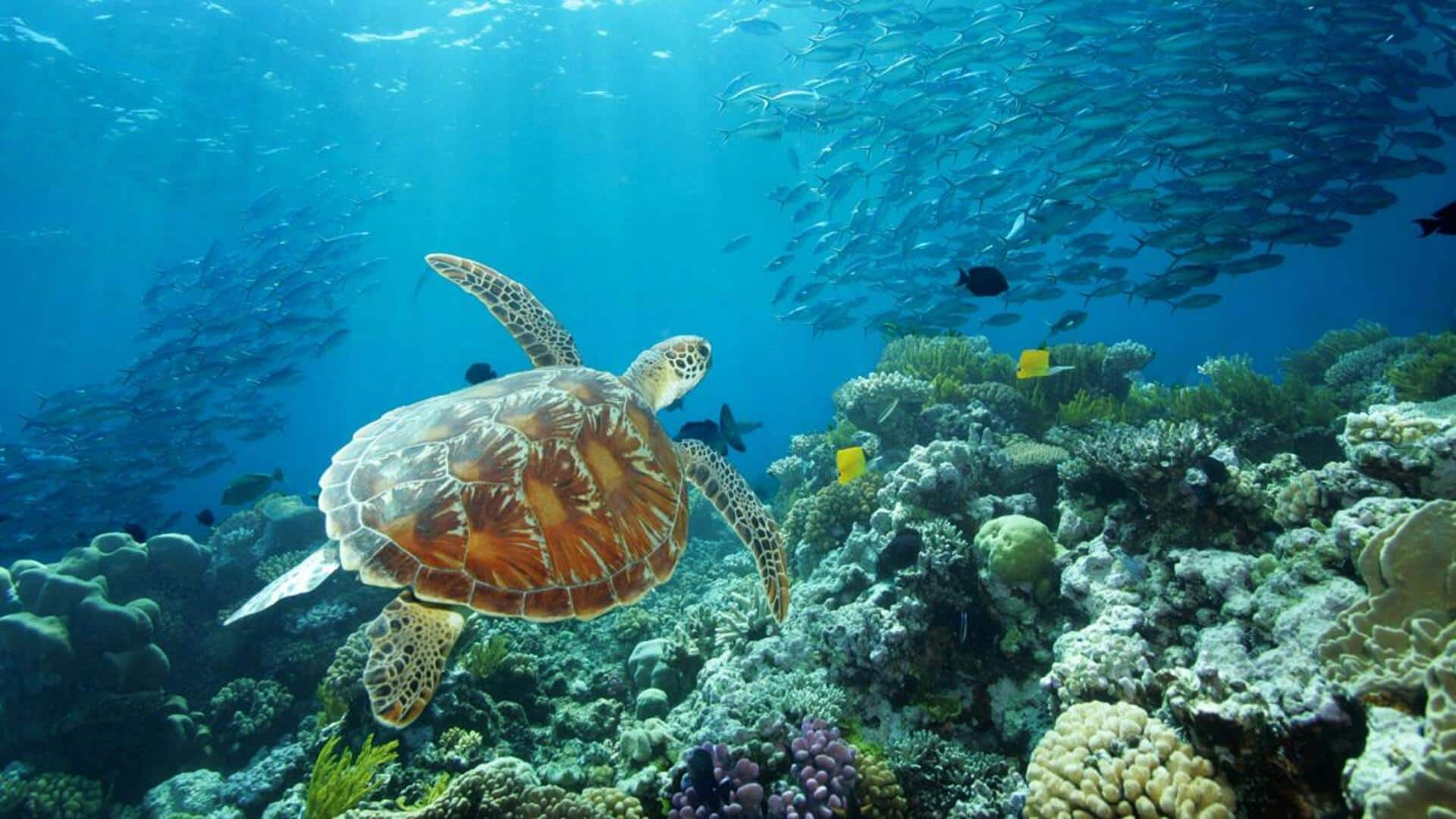
Australia's Great Barrier Reef suffers worst-ever coral decline: Report
What's the story
Australia's Great Barrier Reef, a UNESCO World Heritage Site and the world's largest coral reef system, has witnessed its most severe coral bleaching event ever since records began 39 years ago. The Australian Institute of Marine Science (AIMS) reported that between 25% to 33% of hard coral cover was lost in three major regions of the reef during 2024. Some areas were even more devastated, losing up to 70% of their living coral.
Record loss
Largest spatial footprint
The reef endured its worst summer on record in 2024, when the world saw a rare worldwide mass coral bleaching event that affected dozens of countries. Stressed corals were compelled to expel algae and lose their color as a result of the combination of an El Niño weather pattern and rising water temperatures. The 2024 bleaching event had the "largest spatial footprint ever recorded" on the Great Barrier Reef, according to the report.
Recovery risk
Reef's recovery threatened
The loss of coral is especially worrying, as the reef has seen significant growth in recent years. Fast-growing corals, which helped the reef recover from past bleaching events, were among those severely impacted. The report cautioned that "it raises the prospect that the Great Barrier Reef may reach a point from which it cannot recover." Covering 133,000 square miles (345,000 square kilometers), this ecosystem supports over 1,500 fish species and 411 hard coral species.
Bleaching history
Previous bleaching events
Before 2024, the reef witnessed severe mass bleaching events in 1998, 2002, 2016, 2017, 2020, and 2022. While corals can recover if temperatures return to normal, prolonged warmer water conditions lead to their death. Water temperatures rose again early this year during Australia's summer, reaching their highest point in March and triggering even more bleaching. Oceans absorb most of the excess heat from global warming, with each of the last eight years being a record warm for ocean heat storage.
Ecosystem threat
Threat to marine life
The destruction of coral reefs could threaten around a quarter of all species dependent on them for survival. Reefs also protect coastlines from floods, cyclones, and sea-level rise. The Queensland Conservation Council called the bleaching event "a call to action," urging leaders to reduce emissions and shut down coal power stations. Australians are moving to renewable energy, but critics argue it isn't quick enough.